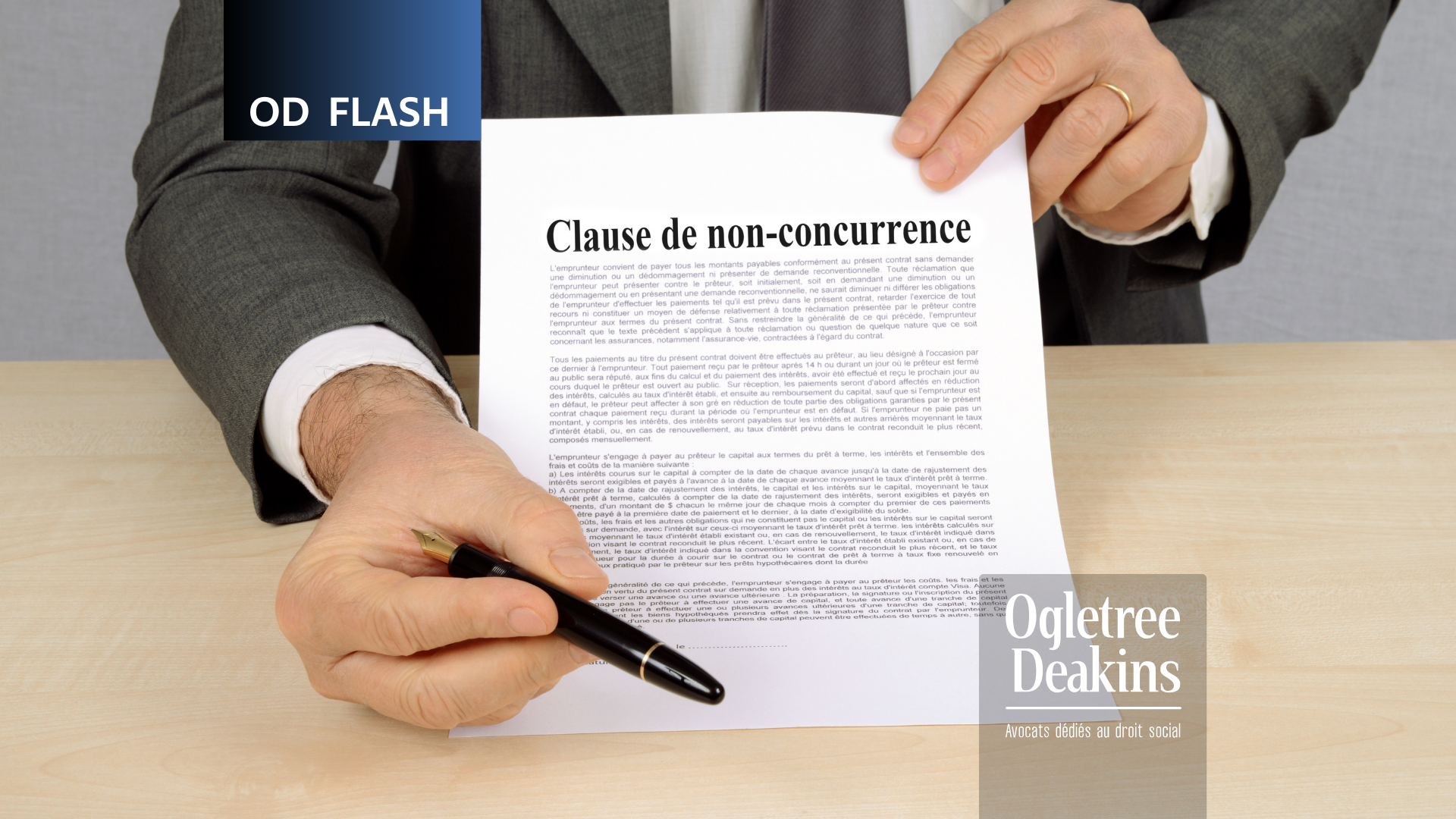Cour de cassation, civile, Chambre sociale, 22 mai 2024, 22-17.036, Publié au bulletin
According to established case law (Cass. Soc. 10 July 2002, no. 00-45.135), a non-competition clause is applicable when it is limited in time, space and materiality. It must provide for financial compensation for the employee and protect the legitimate interests of the company. If the clause does not meet these requirements, the courts may declare it unlawful and annul it.
Cancellation of a non-competition clause does not have retroactive effect, so that an employee who has complied with the clause retains the sums paid before the clause was declared null and void (Cass. Soc. 17 November 2010 no. 09-42.389).
In the judgment of 22 May 2024, the Social Division had the opportunity to rule on the effects of a breach of a non-competition clause by the employee when the clause is deemed null and void by the courts.
An employee was hired on 3 September 2014 as a technical sales representative working at a sales counter. His employment contract included a one-year non-competition clause covering the whole of France, concerning the trading, distribution or sale of all products relating to the distribution, diffusion, filtration, ventilation, insulation of all air ducts, fire protection, air treatment and, in general, all equipment relating to aeraulics in the building industry.
Following the employee’s resignation on 16 March 2018, the employer brought an action before the labour court seeking a declaration that his non-competition clause had been breached and restitution of the financial compensation paid in this respect.
In a ruling dated 23 March 2022, the Paris Court of Appeal held that the clause was null and void, in that the geographical restriction was excessive and unjustified, particularly in view of the duties actually performed by the employee. Furthermore, the appeal judges did not grant the employer’s request for reimbursement of the non-competition indemnity, in that it could not obtain restitution of the sums since, although the employee had breached the non-competition clause, it was deemed null and void.
The employer then appealed to the French Supreme Court. It complained that the judgment held that the non-competition clause was null and void, without considering whether the employee was in fact unable to engage in an activity in line with his training, knowledge and professional experience, and that the Court had only the power to reduce its scope. Lastly, the employer complained that the judgment dismissed its claim for reimbursement of the non-competition indemnity paid to the employee, without investigating whether the employee had complied with his undertaking and limiting itself to declaring the clause null and void.
In its ruling of 22 May 2024, the Court of Cassation overturned the ruling of the Paris Court of Appeal insofar as it dismissed the employer’s claim for reimbursement of the non-competition indemnity. The Social Division considers that the trial judges should have investigated whether the employee had breached the non-competition clause during the period in which it was effectively applied, even though the clause was declared null and void.
Thus, once the employer proves that the employee breached the non-competition clause during the period in which it was actually applied, the employee is entitled to request reimbursement of the financial compensation unduly paid from the date on which the breach is established.



